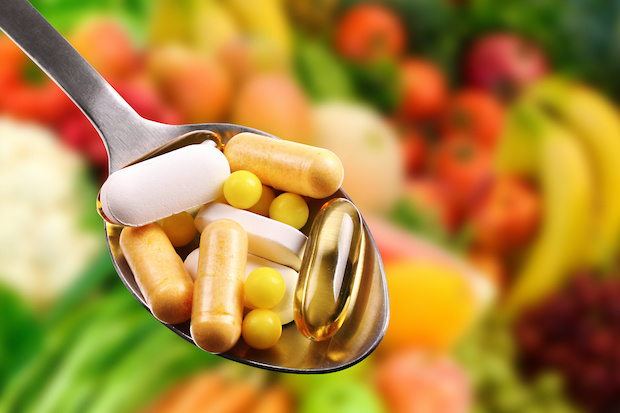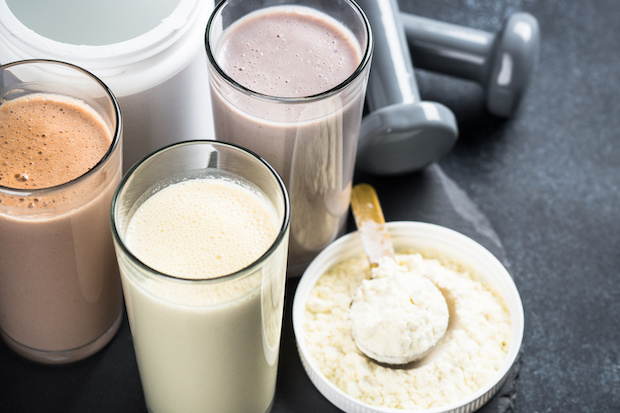On Supplements

I am frequently asked the question, “what supplements do the pros take?” And I don’t really think people like my answer.
The smart ones take very few.
As much as supplements are marketed to athletes or by athletes, chances are most aren’t going to make any significant difference out on the race course. There are, however, a few exceptions.
Sports Foods
Of course, as a dietitian, I need to start here. Sports foods is an umbrella term for items like sports drinks, gels, electrolyte mixes or protein supplements. These food supplements are often convenient, and easy to access around training. The Australian Institute of Sport (AIS) has a supplement framework available online which ranks supplements “according to scientific evidence and other practical considerations that determine whether a product is safe, permitted and effective in improving sports performance." Sports foods provide a convenient source of nutrients when other food is inaccessible or impractical. There is strong evidence that, when used in specific situations, sports foods like gels or chews benefit athletic performance.
This is not to say that every sports food, especially something like protein powder, is safe, uncontaminated, and effective. Consumers need to be careful when selecting which products they use. However, it’s well documented that their use can improve performance in endurance sports.
Medical Supplements
What’s one of the best ways to improve athletic performance? Correct nutritional deficiencies. Low iron levels? Using supplements to bring numbers up to normal range will likely have a huge benefit to an athlete’s fitness. The same goes for other nutritional deficiencies like Vitamin D, Zinc, or B12. It is imperative, before starting any supplementation protocol, to know your current nutrient status. Blindly supplementing can cause deleterious health effects. If you’ve determined you have a deficiency, it’s best to work with your healthcare provider or registered dietitian to figure out what supplement protocol is best for you.
Caffeine
Caffeine is found in the leaves, beans, and fruits of some plants and is regularly consumed by people all over the world. The most common sources of caffeine are coffee and tea, but it’s also found in other foods like chocolate, soda, energy drinks, and some sports foods. Caffeine works by blocking adenosine receptors in the brain, which reduce perceptions of fatigue and effort resulting in lower perceived exertion over a constant workload.
When it comes to caffeine, a higher dose isn’t always better. Side effects of too much caffeine include increased heart rate, anxiousness, increased gastrointestinal motility (hello coffee poops!), inability to focus, and disturbed sleep. The response to caffeine is highly variable between each person. It’s best to start with a lower dose, around 200mg or 1.5-3mg/kg. However, some athletes may function better with doses of 3-6mg/kg. It should be noted that habitual use of caffeine does not impair its performance benefits to athletes. Meaning, there’s no reason to avoid it in the days leading into competition. The benefit will be the same regardless.
Dietary Nitrate / Beetroot Juice
Nitric oxide can improve athletic performance through its role in the regulation of blood pressure, blood flow, mitochondrial respiration, immune function, and muscle contraction. Dietary nitrate, from products like beetroot juice, increases the availability of nitric oxide in the body. It appears to be beneficial for endurance exercise and in hypoxic exercise conditions such as training at altitude.
Dietary nitrate is found in leafy greens, some fruits, and some processed meats. It’s not recommended to increase your processed meat consumption to increase your dietary nitrate intake. However, there can be health benefits from increasing fruit and vegetable dietary sources of nitrate from things like beets, beetroot juice, bok choy, arugula, or celery. Because of the variability of nitrate concentrations between foods, it’s recommended to use a supplement like concentrated beetroot juice before events for best results because these products tend to have more consistent nitrate levels. Highly trained athletes should load dietary nitrate in the days leading into competition by taking 350-600mg nitrate each day for three days before racing. On race day, athletes should then consume 300-600mg nitrate 2.5 hours before the start of their event. As with all things racing, this supplement protocol should be practiced in training before attempting supplementation pre-event.
When choosing a supplement, look for natural sources of nitrate like beetroot juice. Importantly, nitrite or nitrite salt are easily confused for nitrate and can be toxic. Beet root may cause mild GI discomfort, so supplementation needs to be practiced. It should also be noted that there’s limited research on the impact of nitrate supplementation in women, nor is there much research on long term, consistent nitrate supplementation.
Other Supplements

There are a few other notable supplement mentions. Creatine seems to be beneficial in some instances in endurance sports. It provides energy for short, maximal intensity exercise in the make-or-break moments of an endurance sport such as a sprint finish. It also seems to be beneficial for brain health and recovery from mild concussion. However, creatine supplementation can result in 1-2kg body weight gain from fluid retention which may be a downside for some athletes.
Beta alanine supplementation may help buffer the acid buildup for high intensity exercise. Athletes would need to supplement for four to eight weeks to increase muscle stores. In which case, the downside to beta alanine supplementation can be the financial cost. Another downside being possible paraesthesia, an uncomfortable skin tingling sensation which can last up to an hour after high dose supplementation.
Similarly, sodium bicarbonate also acts as a buffer reducing lactic acid build up in high intensity exercise. This supplement has potential. However, the downside being what I will call “pants-exploding GI distress” which could negate any potential performance benefit. It’s still unclear if there’s a benefit of sodium bicarbonate applied directly to the skin.
Supplement Safety and Anti-Doping
All supplements carry risk, even things as simple as electrolyte mixes or protein powders. Here in the US, the Food and Drug Administration does not regulate supplements. They are not reviewed for safety or effectiveness before being made available to consumers. The dosage listed on the label might be drastically different than when actually contained in the product. Not to mention, cross contamination of manufacturing equipment resulting in the banned substances presence in benign products.
If you are going to take supplements, look for items with either a NSF or Informed Sport certification. These products are batch tested for 250+ substances that are banned by WADA.
NSF also verifies caffeine and protein content of their products.
Would I recommend the above supplements to athletes? Sports foods, absolutely. Medical supplements? If there was a deficiency that called for them, sure. The others? They’re definitely not going to be the first point of focus. People need to nail the basics first. This means eating enough, eating around exercise, adequate sleep, proper hydration, and managing stress. Focusing on these aspects will bring about bigger improvements than supplements will.
The supplements that will get you to run the same speed as Jason West, probably aren’t legal. And by that, I’m not inferring that he or any other big performers that work for years are doping. I’m saying that there are no legal shortcuts to getting to the top level of sport. There are few legal supplements that actually improve athletic performance more than a marginal amount. Your best bet is to focus on the big picture. Focus on your training. Focus on your recovery. Supplements are there to do just that: supplement.


Start the discussion at forum.slowtwitch.com